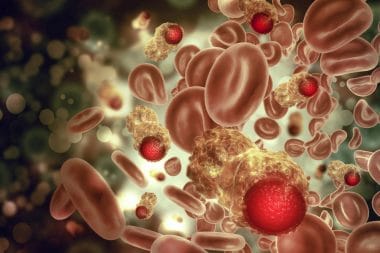After skin cancer, prostate cancer is the most common cancer in American men. Last year, 217,730 men have been diagnosed with prostate cancer and more than 32,000 died of it. At the moment, the common screening for prostate cancer is through a digital rectal exam, ultrasound exam or PSA (Prostate-specific antigen) blood test. While none of these tests are found to be completely reliable, the PSA test, which measures the quantity of this antigen in the blood, has been controversial from the beginning. If the recent recommendation of the United States Preventive Services Task Force is accepted, this test will no longer be routinely used to detect the presence of the PSA in the blood, the first sign of the presence of prostate cancer cells.
 What is the problem with PSA?
What is the problem with PSA?
Many men 50 years old or older are given the PSA test during their regular checkups, often without even knowing that they had it. The test identifies the presence of the prostate cancerous cells and it is up to the doctor and the patient to decide on the treatment. This is where the problems start. Most men can live with prostate cancer their entire life, until they die of some other cause, because prostate cancer grows very slowly. It seldom shows any symptoms or discomfort.
After being diagnosed with prostate cancer, based on the PSA test, most men undergo biopsy, surgery or radiation therapy. Since 1986, about 5000 men died after the prostate surgery and almost 300,000 had complications that ranged from incontinence to impotence and blood in semen. Most of them would have lived a long time with their prostate cancer.
Scientists believe that even men who have faster growing prostate cancer do not benefit from the regular PSA test because earlier treatment does not guarantee to be more effective in combating cancer and saving patients” â„¢ lives.
But, many survivors of prostate cancer do not agree. The former New York City mayor Rudolph W. Giuliani and the financier Michael Milken believe that the timely PSA test saved their lives.
Pro and con
The United States Preventive Services Task Force is an independent group of experts appointed by the US Department of Health and Human Services. The Task Force experts do not believe that the PSA test is useful and can prevent deaths from the prostate cancer. The experts based their decision on the findings of five clinical trials. This decision can affect the federal funding for the PSA testing and can also affect the decision of other health insurance companies to cover the test or not.
But, according to the European Randomized Study of Screening for Prostate Cancer (ERSPC), regular screening for prostate cancer is much more effective than the American scientists believe. The Study found that the screening can cut the number of prostate cancer deaths by 20 percents, particularly among younger men.
Regardless of the Task Force recommendation, it is up to you to decide to be screened or not. Some people, especially older than 65, prefer not to be screened because they prefer not to know if their prostate is cancerous or not. Just think about it: even if you have no symptoms, it would be difficult living with the knowledge that you have a cancer growing in you, regardless on how slow. On the other hand, treatment seems to be even more dangerous than the disease. For younger men who have family history of prostate cancer, it seems prudent to be screened at the age of 40. It is also proven that black men are more prone to having more dangerous type of prostate cancer. Obesity also affects the speed of the disease progression.









Reply